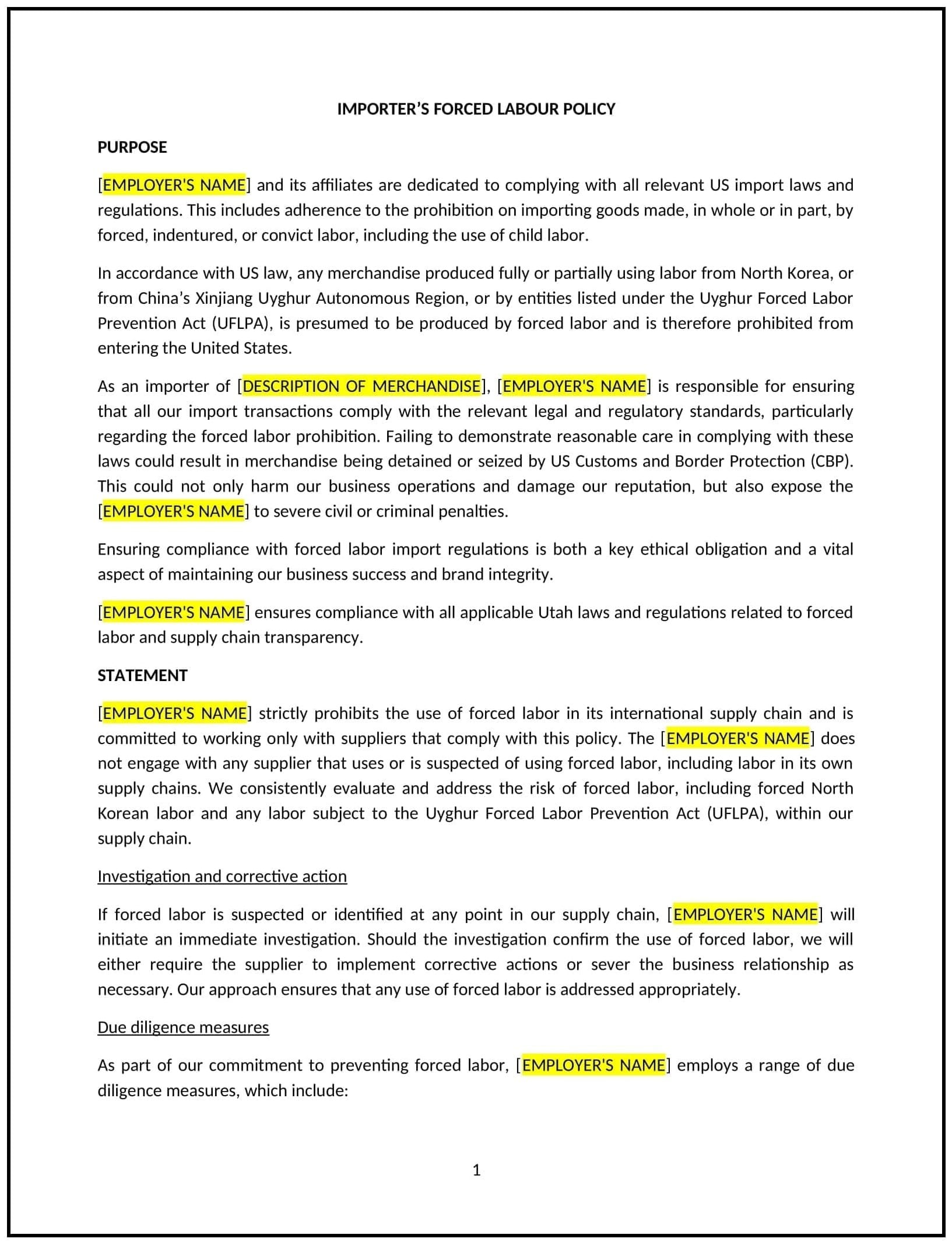Importer's forced labour policy (Utah): Free template
Got contracts to review? While you're here for policies, let Cobrief make contract review effortless—start your free review now.

Customize this template for free
Importer's forced labour policy (Utah)
This importer’s forced labour policy is designed to help Utah businesses establish guidelines for ensuring that their supply chains are free from forced labour and human trafficking. It outlines procedures for vetting suppliers, conducting audits, and addressing violations.
By adopting this policy, businesses can promote ethical sourcing, comply with anti-forced labour laws, and align with general best practices for supply chain management.
How to use this importer's forced labour policy (Utah)
- Define forced labour: Explain what constitutes forced labour, including human trafficking, debt bondage, and child labour.
- Establish supplier standards: Outline expectations for suppliers regarding labour practices and human rights.
- Conduct due diligence: Provide steps for vetting suppliers and assessing their compliance with anti-forced labour standards.
- Perform audits: Specify procedures for conducting regular audits of suppliers to ensure compliance.
- Address violations: Outline steps for addressing forced labour violations, such as terminating contracts or reporting to authorities.
- Train employees: Educate employees on identifying and addressing forced labour risks in the supply chain.
- Review and update: Assess the policy annually to ensure it aligns with evolving laws and ethical sourcing practices.
Benefits of using this importer's forced labour policy (Utah)
This policy offers several advantages for Utah businesses:
- Promotes ethical sourcing: Demonstrates a commitment to fair labour practices and human rights.
- Aligns with legal standards: Helps businesses comply with anti-forced labour laws, such as the U.S. Tariff Act and modern slavery laws.
- Reduces legal risks: Minimizes the risk of penalties, lawsuits, or reputational damage related to forced labour.
- Enhances reputation: Builds trust with customers, investors, and stakeholders by showing a commitment to ethical practices.
- Supports sustainability: Contributes to sustainable and responsible supply chain management.
Tips for using this importer's forced labour policy (Utah)
- Communicate the policy: Share the policy with suppliers and include it in supplier contracts.
- Provide training: Educate employees on identifying and addressing forced labour risks in the supply chain.
- Monitor compliance: Regularly review supplier practices and audit results to ensure adherence to the policy.
- Address violations promptly: Take corrective action if forced labour violations are identified.
- Update regularly: Assess the policy annually to ensure it aligns with evolving laws and ethical sourcing practices.